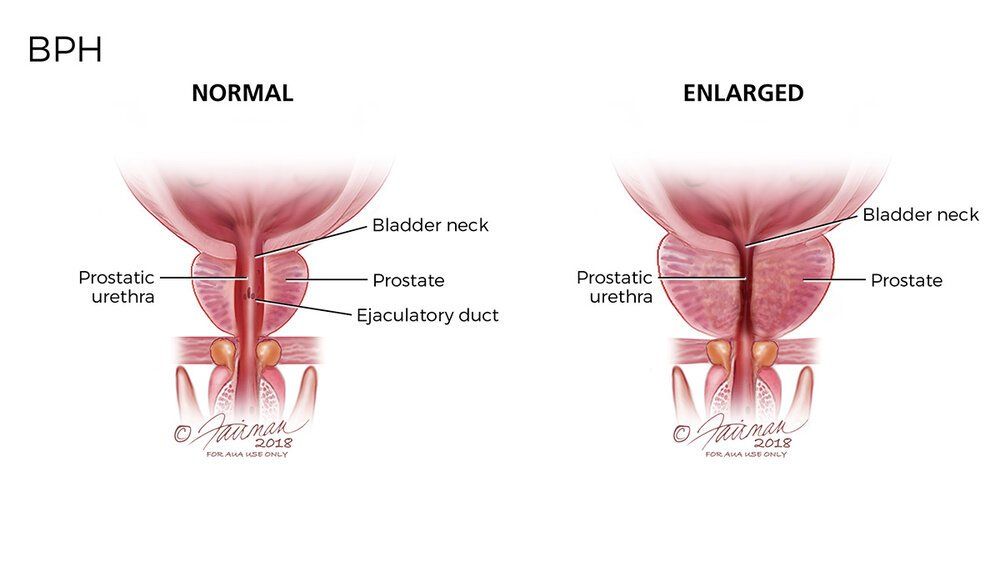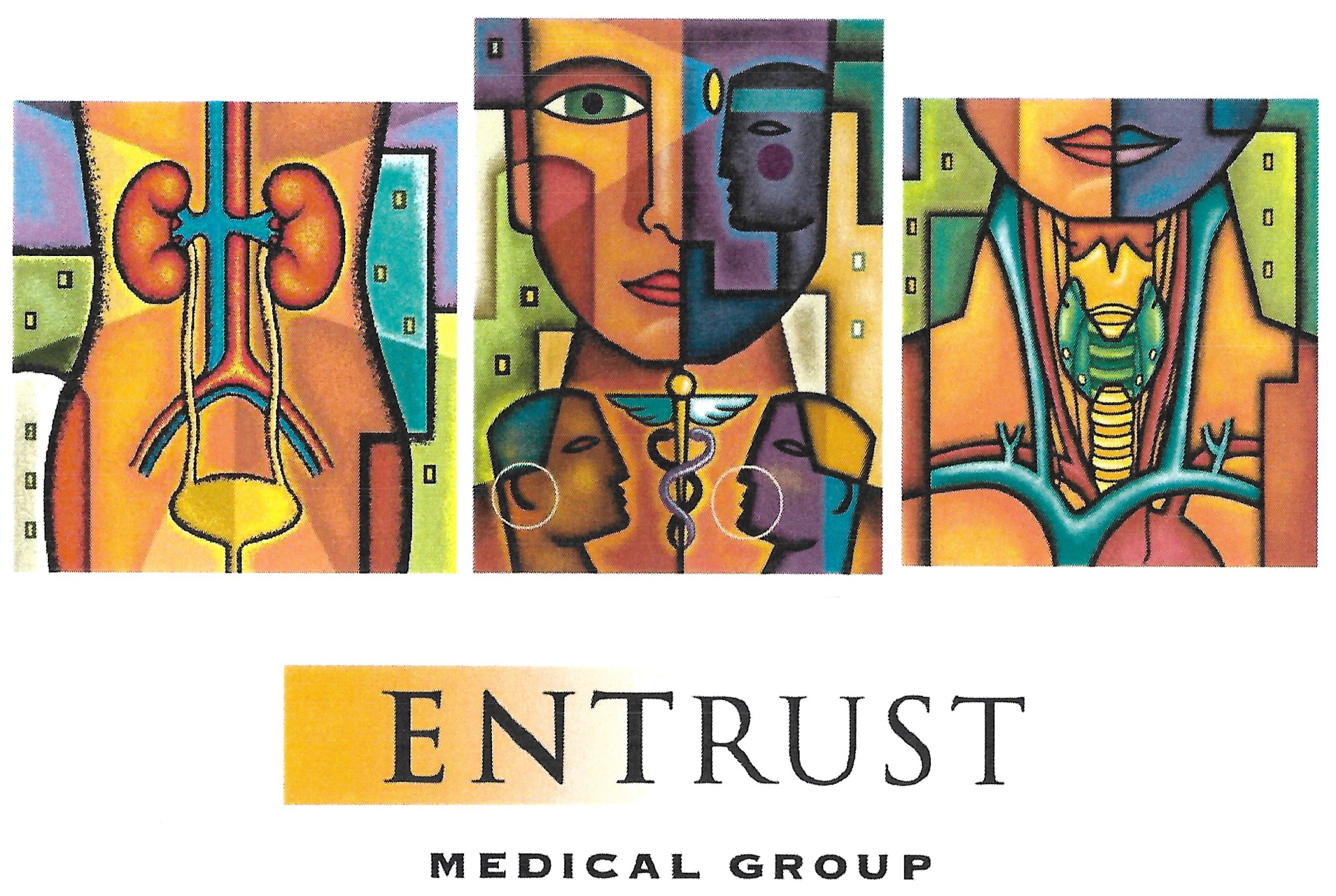Enlarged Prostate (BPH)
BENIGN PROSTATIC HYPERTROPHY (BPH)
BPH is an enlarged prostate. The prostate goes through two main growth cycles during a man’s life. The first occurs early in puberty, when the prostate doubles in size. The second phase of growth starts around age 25 and goes on for most of the rest of a man's life. BPH most often occurs during this second growth phase. As the prostate enlarges, it presses against the urethra. The bladder wall becomes thicker. One day, the bladder may weaken and lose the ability to empty fully, leaving some urine in the bladder. Narrowing of the urethra and urinary retention – being unable to empty the bladder fully – cause many of the problems of BPH.

BPH is benign. This means it is not cancer. It does not cause or lead to cancer. However, BPH and cancer can happen at the same time. BPH is also quite common, as almost half of all men between ages 51 and 60 have BPH. Up to 90% of men over age 80 have it.
TAKE THE BPH SYMPTOM SCORE TEST
SYMPTOMS
When the prostate is enlarged, it can bother or block the bladder. Needing to urinate often is a common symptom of BPH. This might be every 1 to 2 hours, mainly at night.
Other symptoms include:
- Feeling that the bladder is full, even right after urinating
- Feeling that urinating "can't wait"
- A weak flow of urine
- Needing to stop and start urinating several times
- Trouble starting to urinate
- Trouble starting to urinate
- Needing to push or strain to urinate
If BPH becomes severe, you might not be able to urinate at all. This is an emergency that must be treated right away.
How Can BPH Affect Your Life?
In most men, BPH gets worse with age. It can lead to bladder damage and infection. It can cause blood in the urine and cause kidney damage.
CAUSES
The causes of BPH are not well-understood. Some researchers believe that factors related to aging and the testicles may cause BPH. This is because BPH does not develop in men whose testicles were removed before puberty.
Throughout their lives, men produce both testosterone, a male hormone, and small amounts of estrogen, a female hormone. As men age, the amount of active testosterone in the blood lowers, leaving a higher share of estrogen. Studies have suggested that BPH may happen because the higher share of estrogen in the prostate adds to the activity of substances that start prostate cells to grow.
Another theory points to dihydrotestosterone (DHT), a male hormone that plays a role in prostate development and growth. Some research has shown that, even when testosterone levels in the blood start to fall, high levels of DHT still build up in the prostate. This may push prostate cells to continue to grow. Scientists have noted that men who do not produce DHT do not develop BPH.
Who is at Risk for BPH?
Aging and a family history of BPH increase a man’s risk for BPH. Obesity, lack of staying active, and erectile dysfunction can also increase risk.
Can BPH be Prevented?
There is no sure way to stop BPH, but losing weight and eating a healthy diet that involves fruits and vegetables may help. This may relate to having too much body fat, may increase hormone levels and other factors in the blood, and stimulate the growth of prostate cells. Staying active also helps control weight and hormone levels.
DIAGNOSIS
See your doctor if you have symptoms that might be BPH. See your doctor right away if you have blood in your urine, pain or burning when you urinate, or if you cannot urinate.
Your doctor can diagnose BPH based on
- Personal or family history
- A physical exam
- Medical tests
The American Urological Association (AUA) has built a BPH Symptom Score Index. It’s a series of questions about how often urinary symptoms happen. The score rates BPH from mild to severe. Take the test today and talk to us about your results. There are a variety of advanced treatments available that can help
LEARN MORE
For consultation or appointments
All Rights Reserved | Site by Fix8

